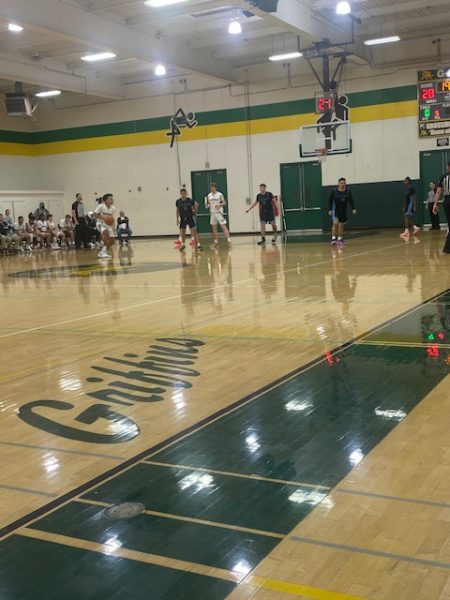Covering Your Prints
Knowing how to protect your digital footprint – or your digital identity – can ultimately save you from unwanted scams.
In a workshop conducted by Grossmont, Jeff Lackey, a Sallie Mae partner and director of financial aid at Peninsula College, offered tips on how to minimize your footprint.
Lackey reminded attendees that thieves can use our information for medical services, utility bills, filing fraudulent tax returns and opening new bank accounts along with lines of credit.
“They’ve even been known to provide stolen names to police officers during traffic citation instances where you may not even know that you were pulled over,” Lackey said.
 Hey added that scammers have become better at sending emails and electronic notifications that look authentic and could appear as if they are coming from companies you associate with. When in doubt, it is better to contact said companies’ customer service directly. It is also important to not use the phone number or links provided in these notifications, as they are more than likely a part of the scam.
Hey added that scammers have become better at sending emails and electronic notifications that look authentic and could appear as if they are coming from companies you associate with. When in doubt, it is better to contact said companies’ customer service directly. It is also important to not use the phone number or links provided in these notifications, as they are more than likely a part of the scam.
Our Social Security number is also a highly targeted piece of information. Lackey advised only sharing it if you are comfortable and being sure to question why it is needed, how it will be used and if there is any other information you can provide instead.
Lackey also discussed biometric ID theft, which he described as “the act of stealing somebody’s physical or behavioral characteristics. And essentially what they are doing is they are using it in a way to manipulate electronic security systems.”
Voice recognition, identification prints and facial imprints all fall under biometric identification. Lackey noted this information is stored on many phones and can be hacked and used by someone with fraudulent intentions.
He also said it was also important to take notice of the existence of synthetic identity fraud.
“That’s the process of taking a combination of people’s personal information, their data, traits and let’s say a multitude of information from your social media account,” he said.
Lackey advised being aware of what information we share on social media because information like our birthdate, school name, pet names and names of significant others can be used to create a counterfeit person.
He said if you find yourself in a situation of suspected fraud, you should keep all paper information and emails that are provided to you regarding the situation. “Anything that they take from you that is considered non-public is essentially a crime,” he said.
Will Rivera, a partner of California Coast Credit Union, mentioned his company has a free financial wellness resource that can be accessed online at www.calcoastcu.org/enrich. He describes the site to be a “variety of articles, videos and tools to help you with financial wellness, questions, identity theft.” You do not have to be a member or student to access this resource.
On campus, we have Jason Bunch, who is part of California Credit Coast Union and manages the Financial Wellness Center. Grossmont students can take advantage of the services provided by Bunch every other Tuesday at Student Services.
Your donation will support the student journalists of Grossmont College. Your contribution will allow us to purchase equipment and cover our annual website hosting costs.

Born and raised in San Diego. Majoring in journalism in hopes of becoming a motor sport journalist.













